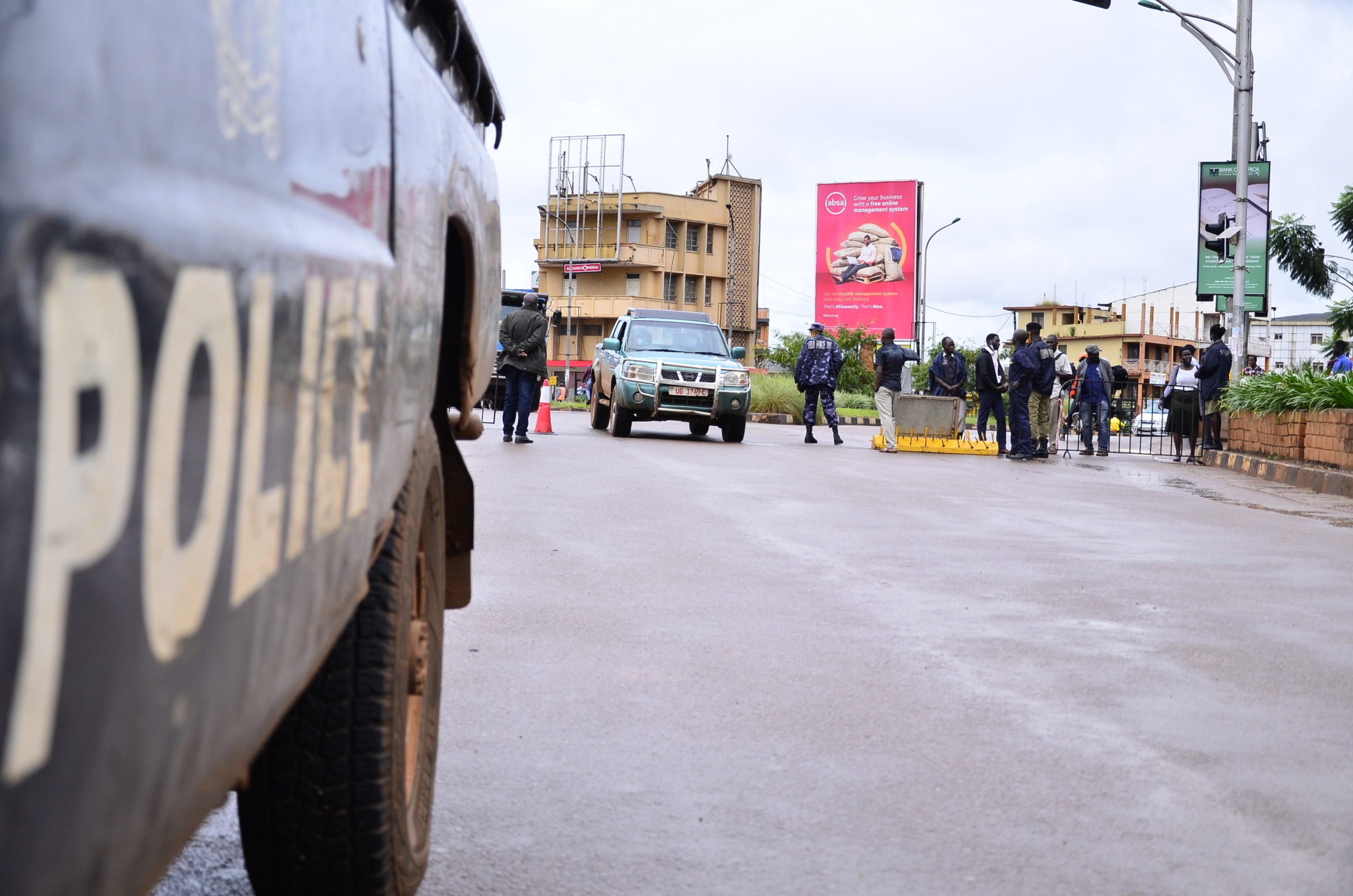By Tabu Butagira
The Lancet Covid-19 Commission last month named Uganda among nineteen countries that it noted had suppressed the pandemic based on an analysis of the disease’s August 2020 global data.
The finding may have evoked some scepticism as it dovetailed with rising, not falling, Coronavirus infections and deaths in Uganda that had recorded no death in the first four months since confirming outbreak of the disease in the country in March 2020.
But according to the Commission, its categorisation of suppression simply means “there are 5 or fewer new cases per million population per day (in August)” against a backdrop of at least 20 tests for every new case.
Uganda through Health Minister Jane Ruth Aceng harped on the plaudit understandably because the Lancet is a reputed medical journal whose experts’ verdict relies, or should anchor, on authoritative science.
That the finding was communicated in the Commission’s statement to the 75th United Nations General Assembly (UNGA) session makes it high-profile, earning Uganda greater world-wide visibility for something positive.
Nonetheless, questions arise about what such a feat against Coronavirus means in real life or what it should look like for citizens, which disappointingly is not the mainstay of this article.
Rather, I cast and examine Uganda’s success – and the likely turbulence ahead – as an outcome of securitisation of the pandemic in a way that suppressed transmission in the early stages, but also gifted President Yoweri Museveni unending control over the population and politics.
To illustrate this, it is imperative to reflect on his decision to resurrect his guerrilla form and tactics during televised addresses as the magic portion to command citizens’ compliance, trust and protection.
Restoring human security and lifting Uganda out of a political and economic quagmire has been a cornerstone credit claim by Mr Museveni who barrelled himself to state power through the National Resistance Army (NRA) rebel outfit. It then follows that redressing in a guerrilla garb had a particular purpose for the incumbent: reproducing his revolutionary stature and liberating mission.
In the Coronavirus-induced crisis, the President argued that a resort to guerrilla methods – encapsulated in 35 decrees (including sternly enforced lockdown and political activity freeze) that he unilaterally issued between 18 March and 30 March, 2020 – was inevitable.
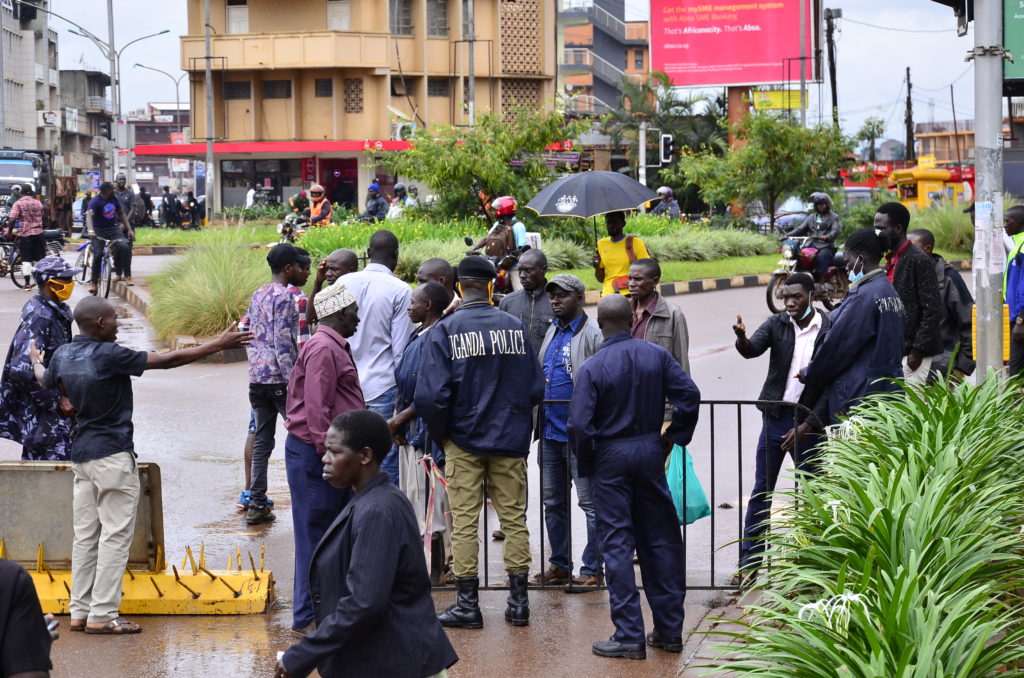
“In our bush (guerrilla) language, all these measures were aimed at: stop, kneel, keep quiet and listen. In that way, you can hear the enemy clearly moving (sic) in the grass or bush, locate its approximate position and act,” he said in a 4 May address about the pandemic.
In other words, to Mr Museveni, the rebel tactics of forty years ago still presented a correct diagnosis and solution prescription against this time an invisible, non-territorialised and unarmed yet vicious enemy. The chosen path appears to have reflected a scientific strategy anchored on forcible execution.
If Uganda’s comparably low infection and death rates are considered, President Museveni’s prompt, decisive and securitised actions paid off. However, it is necessary to be cautious with such optimism especially that both Covid-19 infections and deaths have begun rising with uptick in electioneering activities.
This reveals that scientific standard operation procedures (SOPs) to tame the virus were accepted and worked in Uganda only when they coincided with the securitising agenda and politics.
If considered that SOPs is a lexicon more common in the military to denote granular instructions to achieve a task, it follows that the widespread usage of the terminology in Covid-19 response represents a normalisation of the pandemic as war. And this provided the strings for many leaders, including in Uganda, to seize control to securitise anything and reproduce other outcomes unrelated to Coronavirus management.
As a theory of security studies, securitisation emerged from the 1990s research works by Barry Buzan, Ole Waever and Jaap de Wilde at the defunct Peace Research Institute Denmark, which is why it is alternately called the Copenhagen School Theory.
In summary, the theory posits that security does not exist as an objective reality and that something becomes a security issue because an actor with power and means (notably the elite) proclaim it as posing existential threat to a referent object.
On that basis, therefore, an audience is convinced to accept the threat and this acquiescence in turn enables a securitiser to suspend normal politics and introduce emergency measures to tackle the threat. There are, of course, multiple security theories and contrasting discourses not considered in this article.
So, how then has securitisation been applied in Uganda’s Covid-19 response? If we can ignore the limitation of this particular theory for a moment, it is possible to argue that a combative rhetoric shipped the health threat to a security arena and enabled deployment of armed security forces on Uganda’s streets and neighbourhood to enforce SOPs with battle-front rage, methods and punishment.
This makes allegations in a British Broadcasting Corporation (BBC) 23 July, 2020 news report that Local Defence Unit (LDU) personnel had, while enforcing SOPs, killed 12 Ugandans even before any succumbed to the virus, less surprising. Why?
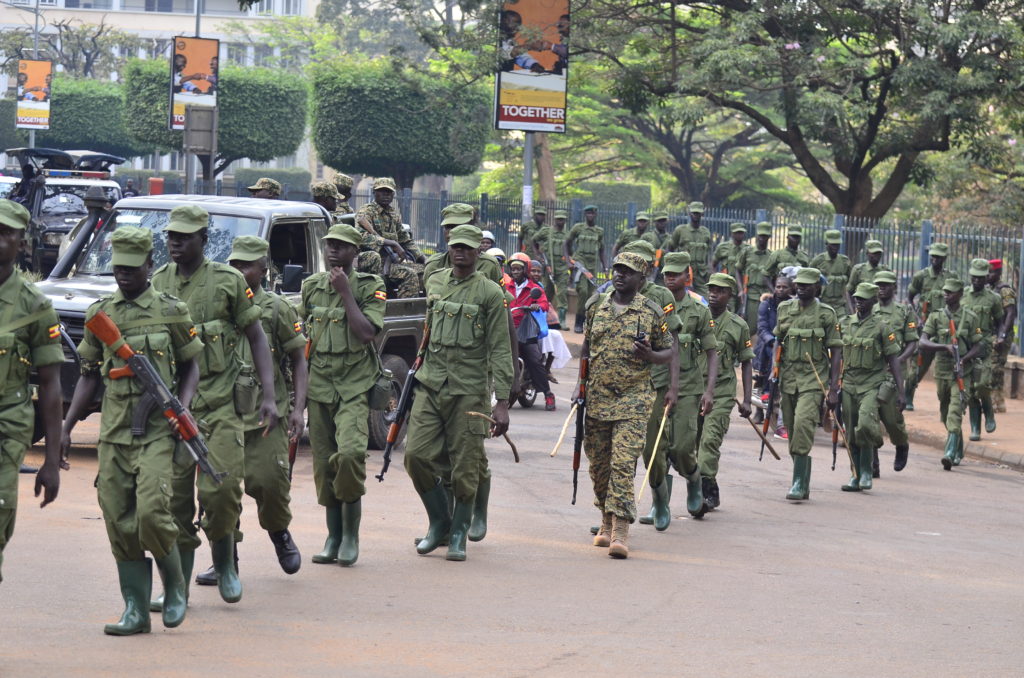
Because successful securitisation legitimates suspension of normal politics and renders any emergency measure justifiable, whatever the cost or impact. This, I argue, is the kind of opportunity that Covid-19 has afforded many leaders.
Whereas Uganda is the country whose situation I discuss, its President, Museveni was not the only or first leader to invoke war imagery in responding to the pandemic. Yasmeen Serhan in an article titled, The Case Against Waging ‘War’ on the Coronavirus, which The Atlantic published on March 31, 2020, named a number of world leaders who turned to warrior lexicon to excite nationalist sentiments and mobilise the population to act together.
For instance, Ms Serhan writes that France’s Emmanuel Macron declared that the country was at war with an invisible enemy, Xi Jinping waged a people’s war in China (where Covid-19 originated), in the US Donald Trump proclaimed himself a war-time President while Prime Minister Boris Johnson placed the UK on a war footing.
It is worth noting that the war drums about the Coronavirus threat did not necessarily birth similar actions or outcomes. As noted in The Atlantic article, the leaders’ combat cry aimed to communicate the gravity of the gathering health crisis that they felt citizens were under-estimating and lax about.
Lancaster University’s Veronika Koller told The Atlantic that “war metaphors call for mobilisation, for action, for doing something”. It is the performative function of language which is foundational to the discursive construction of existential threats as proponents of Securitisation Theory posit.
As John Galtung and Jan Oberg put it, the “utterance [or language] enables a state actor to move an issue into a specific area and thereby claim a special right to use whatever means …”
Thus, it is contended that Museveni during his televised addresses about Covid-19 calculatedly christened the pandemic a “war” by an invisible enemy. Of course, the reference sounded innocuous.
Yet, in essence, it pressed a button that moved Coronavirus from the domain of a health crisis and territorialised it as a security emergency. This move reproduced various other outcomes.
First, it cut off ordinary Ugandans from the process of contributing to the pandemic response unless at the command and wish of the President. Second, it inserted the military and police, and not health practitioners, as principal agents to superintend enforcement of counter-Coronavirus measures.
Third, it justified the demand for, and rushed allocation of, trillions of shillings in a supplementary budget including substantial classified disbursements whose purpose on an election eve remain open to interpretation. Fourth, a securitised response rendered the population effeminate and more reliant on the state for safety, making it easy to govern.
Fifth, and most importantly, securitisation of the pandemic domiciled it in an arena of President Museveni’s most expertise: security enclave.
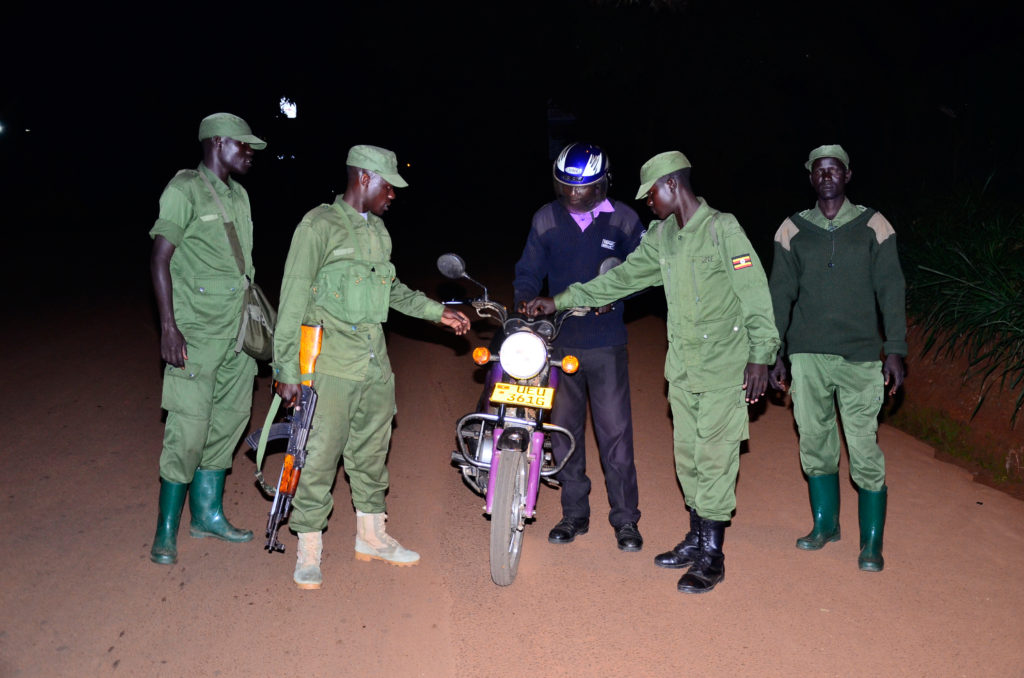
Had Coronavirus been considered purely a health crisis, the lead actor under Uganda’s laws would have been the Minister of Health Ruth Aceng. Yes, she was a posterchild in a way, but one eclipsed by the President in reality.
This was manifest, for example, in the fact that many of the 35 directives that Museveni issued, including movement restrictions and border closures, are under Sections 10, 11 and 36 of the Public Health Act a responsibility of the Minister of Health. They should have been exercised through statutory instruments. But as observed in Uganda’s response, the statutory instruments followed presidential proclamations.
In addition, the configuration of the pandemic as a security matter requiring a security approach was visible in the president’s directive to assign resident district commissioners (RDC) to superintend Covid-19 response at local government level. Each local government is led by an elected leader who embodies local interests and mandate and is accountable to the people.
By contrast, an RDC is a parachuted presidential acolyte and requires no medical expertise or democratic mandate to act and, therefore, can afford to be robotic and ruthless without consequence when enforcing a presidential edict. What RDCs also bring to the table is a security flair and clout; they each by law chair the district security committee, which mandates them to oversee and mobilise security forces in their areas of jurisdictions for action at the snap of fingers.
This perhaps explains why the state for long ignored the alleged rampant torture of civilians in the name of containment of Coronavirus because the brutality served a security purpose: extracting citizens’ compliance with curfew rules and keep criminals or violators of presidential directives in check. Otherwise, what is the science that Covid-19 was more likely to spread at night or past certain hours of restricted movement or business closures?
The accused violent LDUs were recalled for refresher training only after images circulated of citizens being shot, pregnant women being brutalised and, as in Mubende, an elected district chairman being publicly manhandled. This perhaps was a lucky coincidence and political face-saving opportunity.
With campaigns for the early 2021 elections knocking, it was going to be costly and counter-productive to keep LDUs on the prowl against all and sundry. Previous elections have shown that security forces target more the opposition leaders and their supporters and rarely politicians subscribing to the ruling National Resistance Movement (NRM) party.
This paradigm is unlikely to change. This may explain why police or LDUs neither blocked nor dispersed party primaries-related processions by NRM stalwarts in different parts of the country. Yet, there was real risk, as is with the whole election exercise, that crowding will exacerbate the pandemic situation. This speaks to the earlier point I raised that scientific advice only had currency when it met political and security interest of state actors.
It is how Health Minister Aceng, praised for her initial solid leadership in fighting the pandemic, broke her egg of success when video-recorded marching with supporters in her home district, which she is seeking to represent in the 11th Parliament. Or, when President Museveni addressed city dwellers, many without face masks, at the ground of a razed church.
These actions which contradicted the Covid-19 directives, alongside the Executive’s unending huge supplementary budget requests to fight the pandemic, eroded the public’s trust in the words of the leaders who appeared not to make the same sacrifices they asked of citizens in the war on the virus.
In the result, infections and deaths are spiralling upwards yet there is widespread non-compliance with the SOPs and near full re-opening of the country. This contradistinction is difficult to explain by science. Rather, it is more attractive to argue that electioneering politics has diluted a securitised enforcement and medical practitioners, rendered in the initial response stages subordinate to state security actors, find themselves hamstrung to lead from the front. It does appear Uganda’s counter-pandemic operation now has no committed commander, opening the door to unending blame games for rising cases.
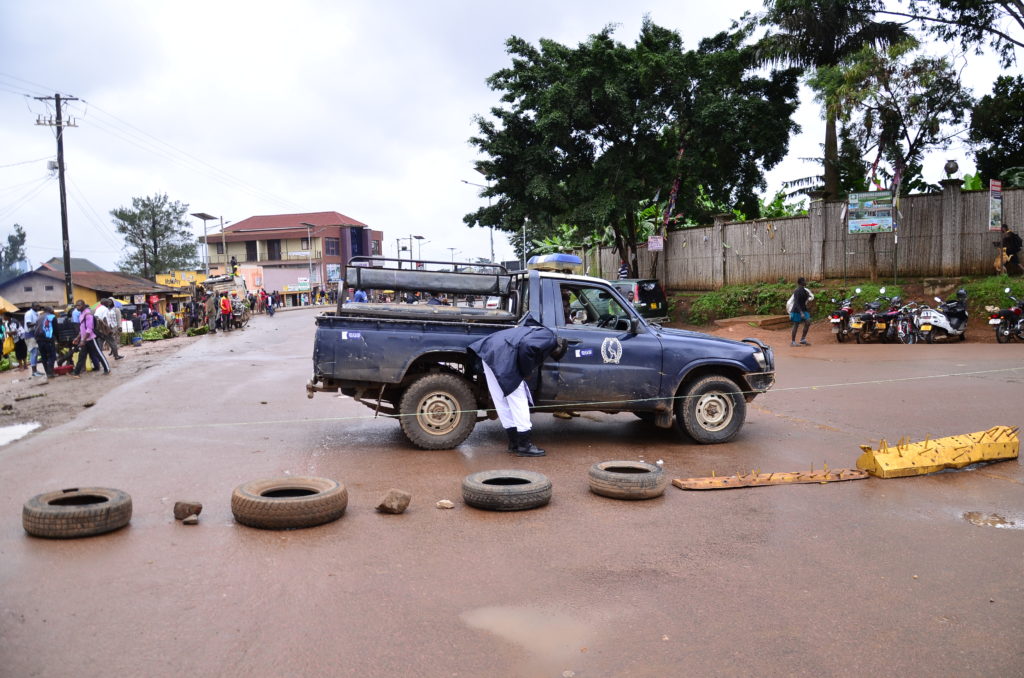
What has not collapsed, though, road blocks manned by armed security personnel to serve a security, rather than Covid-19 prevention, purpose. It is a further qualification of the main argument that Uganda securitised its approach to the pandemic to enable the adoption of emergency measures for unending control of the population.
If it was the case that Uganda securitised its Coronavirus response, as argued, would it be inherently wrong? The answer to this question depends on whether one is ideational or pragmatic.
The former would concern with the infringements on rights and freedoms that securitisation of the pandemic enabled in Uganda, including reported killing of citizens by LDUs enforcing SOPs. In addition, the unending control of the population and political activity in the name of the pandemic could be seen as deliberate to benefit President Museveni and his ruling party in the run up to general elections.
For a realist, the consideration would be simple. Did Museveni’s directives, whether legal or not, save lives and prevent spread of the disease? If considered that no Ugandan died in the first four months of Covid-19 outbreak in the country, then the draconian measures worked.
In any case, Article 99 of the Constitution of the Republic of Uganda vests all executive authority in the country in the President and, as the elected head of state, he bears primary responsibility for the safety and wellbeing of Ugandans. Looked at this way, technicalities should not stand in the way of a President to safeguard populations.
If this is accepted, then the unanswered question would be: when would the political chief executive of a country ever require to submit to the law or be stopped from breaching it?
The question is made more poignant by the apparent better handling of the pandemic by countries that the Swedish International Institute for Democracy and Electoral Assistance (IDEA) and the Economist Intelligence Unit separately label as outright dictatorships, totalitarian and or hybrid. One way of visualising this is by mentally or practically super-imposing the global pandemic map situation over the world map of democracies and dictatorships.
Just to give an idea, besides Uganda, other top countries that the Lancet Covid-19 Commission praised for suppressing the virus include China, Thailand, Vietnam, Laos, Myanmar, Cuba, Rwanda Malaysia, New Zealand, Togo, Pakistan, Latvia, Luxembourg, Uruguay, Korea and Finland. Put another, majority are not the high fliers on global democracy index.
A thought-provoking question from lessons of Covid-19 then is: does the nature of government matter in tackling a health crisis?
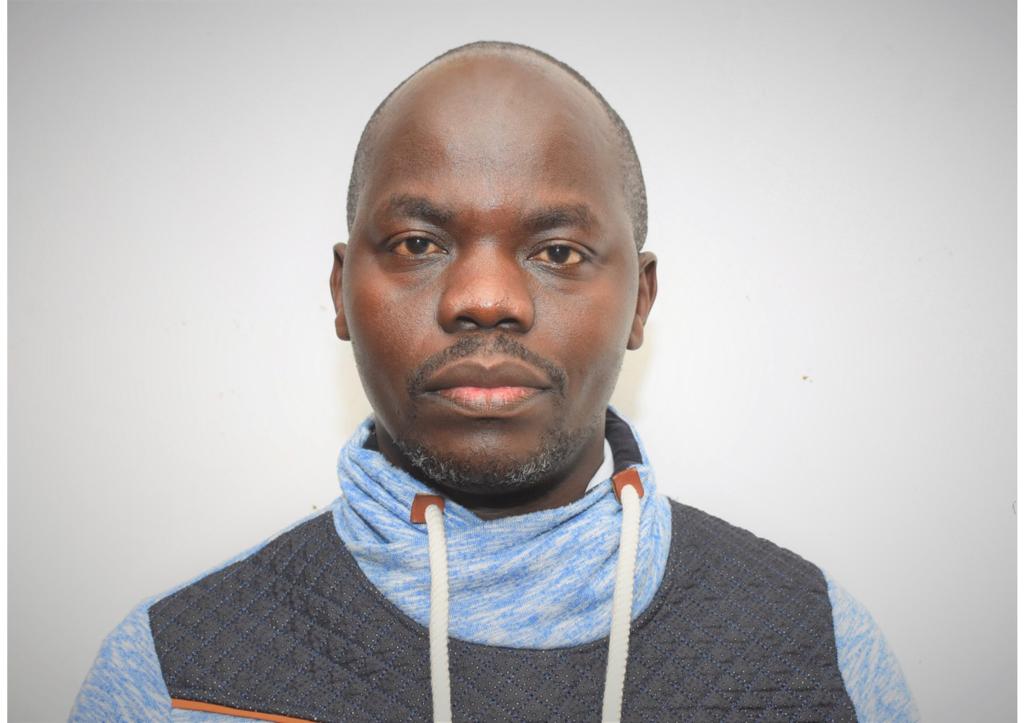
The author is a journalist, Hubert H. Humphrey (Fulbright) fellowship alumnus and has just completed his MA International Relations and Security studies at the University of Westminster, United Kingdom, where he was a 2019/20 Chevening Scholar.


